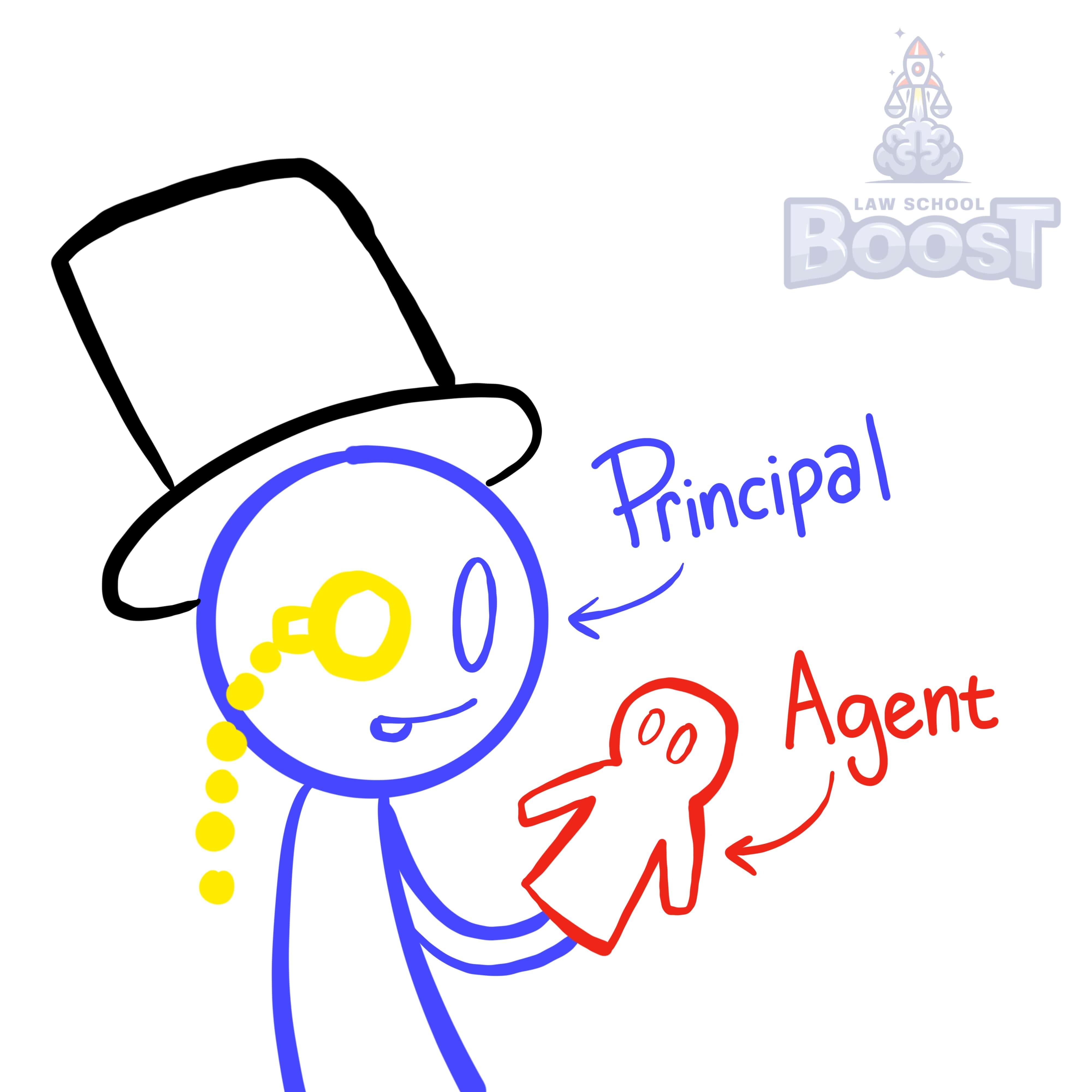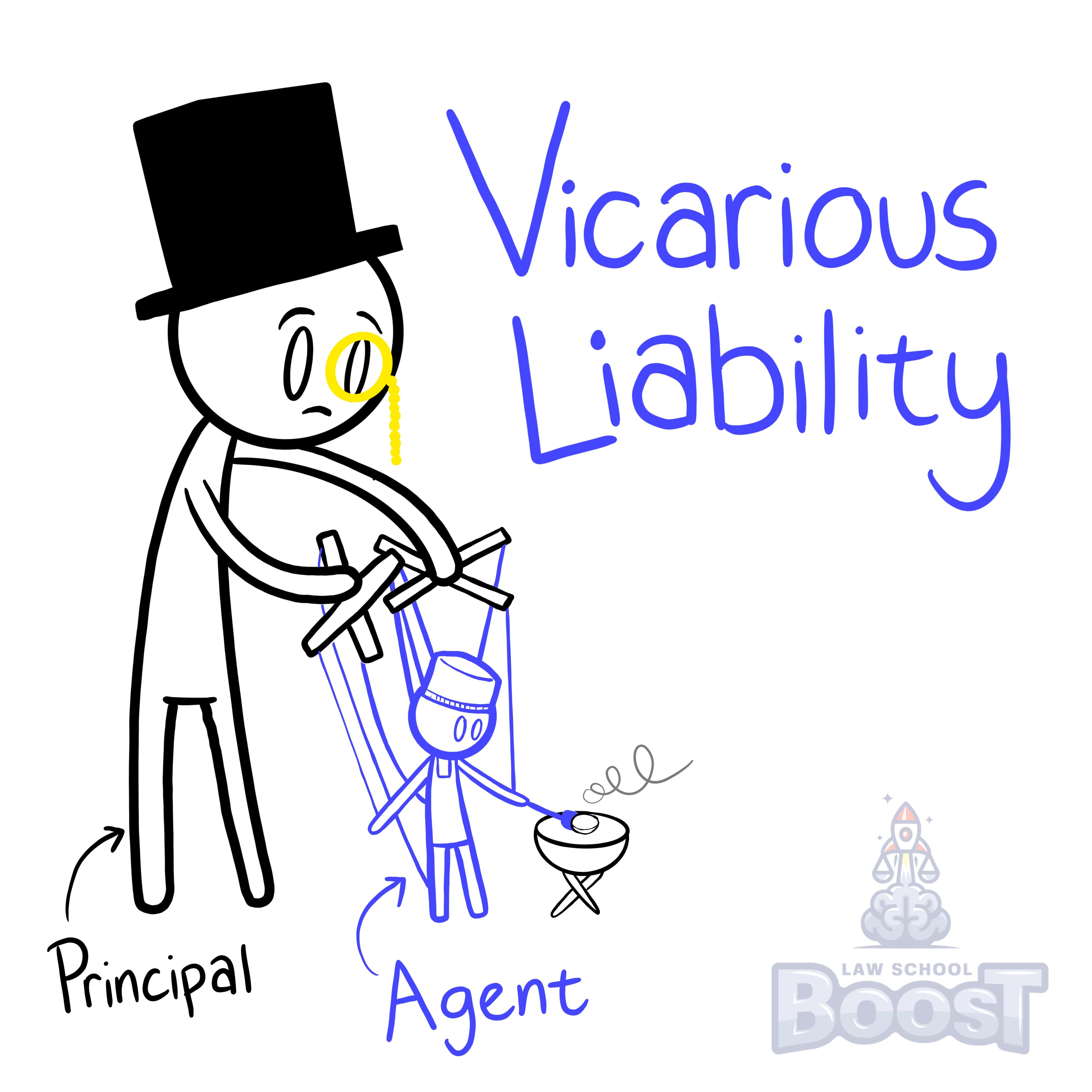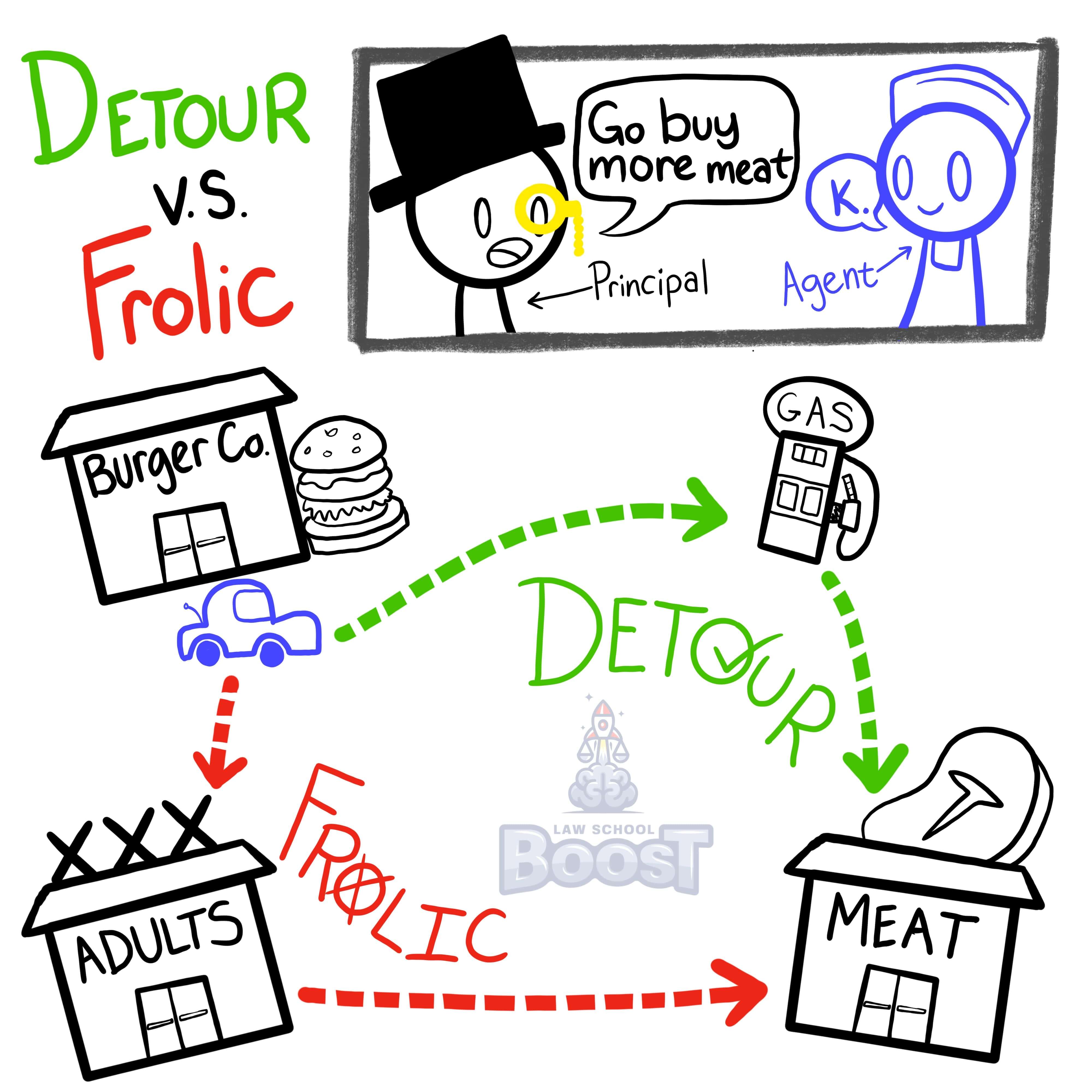❤️
Agency • Liability of Principal for Agent's Torts
AG#001
Legal Definition
A principal is vicariously liable for torts committed by their agent if (1) there is a principal-agent relationship and (2) the agent committed the tort within the scope of the relationship.
Plain English Explanation
You are generally liable for the consequences of your actions, and you are not liable for the consequences of actions by others. However, when you influence the actions of others to the point that they act on your behalf, then you may be at fault for the harm that they cause. In other words, vicarious liability is liability for the actions of others who were doing stuff for you on your behalf.
Hypothetical
Hypo 1: Amy hires Bob at her bakery. One day, Amy realizes she is out of sugar. She tells Bob to go to the store and buy more. Bob gets in his car and, on the way to the grocery store, crashes his car into Sam. Result: Bob crashed his car while running a business-related errand for Amy, so Sam could sue Amy for his damages under respondeat superior, a fancy Latin phrase for vicarious liability that means "let the master answer."
Hypo 2: Amy hires Bob at her bakery. One day, Amy realizes she is out of sugar. She tells Bob to go to the store and buy more. Bob gets in his car and, on the way to the grocery store, decides he wants to visit a strip club. As he's pulling into the strip club parking lot, he hits Sam's car. Result: Bob may have initially been running a business-related errand for Amy, but his personal decision to deviate from that plan and visit a strip club severs the link to his employer. As a result, Sam may not sue Amy for the damage.
Hypo 3: Amy hires Bob at her bakery. One day, Amy realizes she is out of sugar. She tells Bob to go to the store and buy more. Bob gets in his car and, on the way to the grocery store, decides he needs to get gas. As Bob pulls into the gas station, he hits Sam's car. Result: Bob crashed his car while running a business-related errand for Amy. Even though he didn't go directly to the store, the brief detour to get gas does not eliminate a link to his employer. Therefore, Sam may sue Amy for his damages.
Hypo 2: Amy hires Bob at her bakery. One day, Amy realizes she is out of sugar. She tells Bob to go to the store and buy more. Bob gets in his car and, on the way to the grocery store, decides he wants to visit a strip club. As he's pulling into the strip club parking lot, he hits Sam's car. Result: Bob may have initially been running a business-related errand for Amy, but his personal decision to deviate from that plan and visit a strip club severs the link to his employer. As a result, Sam may not sue Amy for the damage.
Hypo 3: Amy hires Bob at her bakery. One day, Amy realizes she is out of sugar. She tells Bob to go to the store and buy more. Bob gets in his car and, on the way to the grocery store, decides he needs to get gas. As Bob pulls into the gas station, he hits Sam's car. Result: Bob crashed his car while running a business-related errand for Amy. Even though he didn't go directly to the store, the brief detour to get gas does not eliminate a link to his employer. Therefore, Sam may sue Amy for his damages.
Visual Aids






Related Concepts
Generally, when are an agent's actions within the scope of a principal-agent relationship?
What are the requirements for a principal-agent relationship to be established?
What is the difference between a frolic and a detour?
When are intentional torts considered within the scope of an agency relationship?
When is a borrowing principal liable for torts committed by a borrowed agent?
When is a principal liable for torts committed by an independent contractor?
When is a principal liable for torts committed by a sub-agent?


